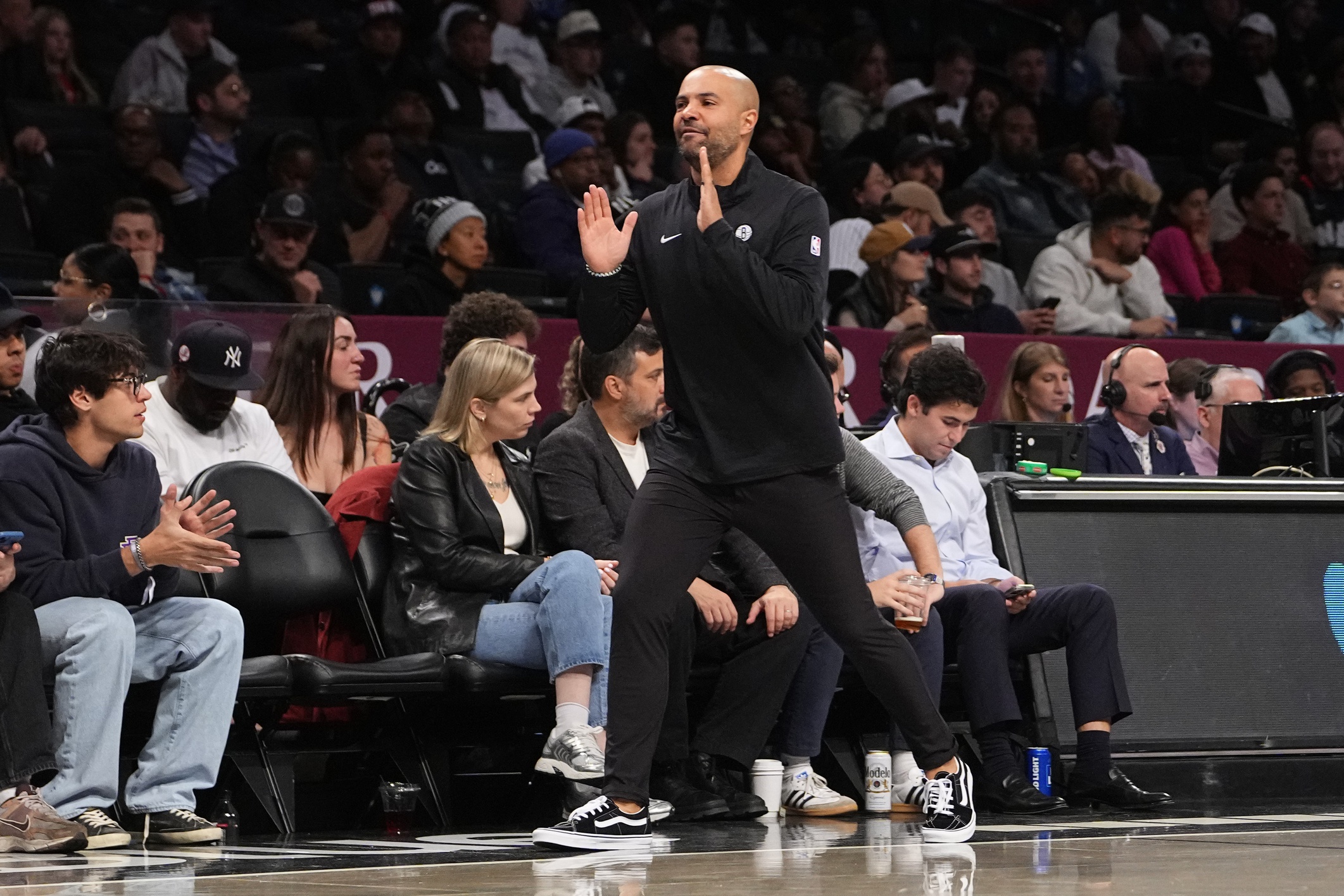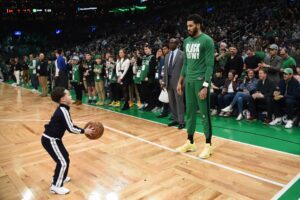There are a number of teams that may have given up on Ben Simmons if put in the same position. However, the Brooklyn Nets stuck by Simmons through two-plus injury-riddled seasons, hoping to be rewarded for their perseverance. The 2016 No. 1 pick has responded in kind, playing whatever role has been asked of him when he has been healthy.
In his first two seasons with the franchise, he’s averaged 6.7 points, 6.7 rebounds, 6.0 assists, 1.2 steals, and 0.6 blocks in 25.7 minutes per game in a point-forward-center role. He’s followed that up by tallying 5.8 points, 6.0 rebounds, 6.2 assists, 0.7 steals, and 0.7 blocks in 24.3 minutes per game in 2024-25.
Nets head coach Jordi Fernandez believes he can do more.
“I want him to shoot more than that,” Fernandez says, per the New York Post’s Ryan Dunleavy. “My goal for him is 10. He has to find a way to get there… I know he can.”
“He is physically getting where he’s supposed to be, and those attempts need to go up,” Fernandez said. “Because then we are all going to benefit from it. I don’t care about makes-misses. I just want to see shots going up. He’s more than capable of doing it, so he’ll get there for sure.”
Nets’ Jordi Fernandez Uses Psych Background With No. 1 Pick Ben Simmons
Every coach has to put on their psychologist hat at some point in time, even if they don’t want to. Coaching a player like Simmons, whose confidence has waned over the past few years, requires Fernandez to do it full-time. Fortunately, that’s right up his alley, as he’s one academic article away from a PhD in sports psychology.
The first-time NBA head coach is already put his knowledge to work.
Easy Does It
In order to coax more out of Simmons, Fernandez has to challenge him. At the end of the day, he’s a competitor, no matter how passive he’s been as a shot-taker. For evidence of that look no further than the way Simmons competes on defense (or the very fact that he’s still playing after multiple injuries).
Jordi Fernandez loves this defensive intensity by Ben Simmons. they exchange low fives after. #NetsWorld pic.twitter.com/M8nqfHnRSN
— Jeri Tsai (@JeriTsaiNets) October 31, 2024
Because Simmons’s confidence is fragile at the moment, Fernandez has to be careful about what he says though. It’s rarely in a coach’s best interest to single a player out in the media. However, Fernandez’s tactic has been to call Simmons out publicly, but in a way that assuages his ego.
For example, he’s been critical of Simmons’s tendency to get in foul trouble. Instead of hammering points about Simmons needing to improve his discipline, he’s commended his effort and physicality. This goes a long way towards raising Simmons’s level of self-assurance.
Jordi Fernandez on Ben Simmons’ high foul rate, including five in Memphis Wed.
“I’m very happy the way he competed and especially that last foul picking up full court and contesting…He’s embracing physicality and right now, yes, we’re fouling a lot, but we’ll live with it.”
— Evan Barnes (@evan_b) November 1, 2024
When it comes to Simmons’s reluctance to be an aggressive scorer, Fernandez is taking the same approach. Instead of lambasting him for his passiveness, he’s pointing out that Simmons is capable of shooting more and that the team needs it. The latter point is particularly important.
Simmons’s primary reason for not taking three-point attempts when it first became a major topic was his belief that he was simply far better at scoring in other ways. Now, his head coach is telling him —make or miss — his attempt will be what’s best for the team. He’s also not quite dictating the location of Simmons’s attempts, just saying he needs to increase the volume.
It’s For His Benefit, Too
Ultimately, Simmons becoming more aggressive offensively requires him to get out of his own head. Whether he’s concerned about criticism or his health, it’s a psychological hurdle that has to be cleared. That’s no secret. In fact, it’s the element in the room.
He does add what’s an understated value to a team with his basketball IQ, passing, defense, and even rebounding. However, he can do more for a team and himself by attacking more often. A player who sounds like he wants to stick around for a few more years, following Fernandez’s lead could be key.






